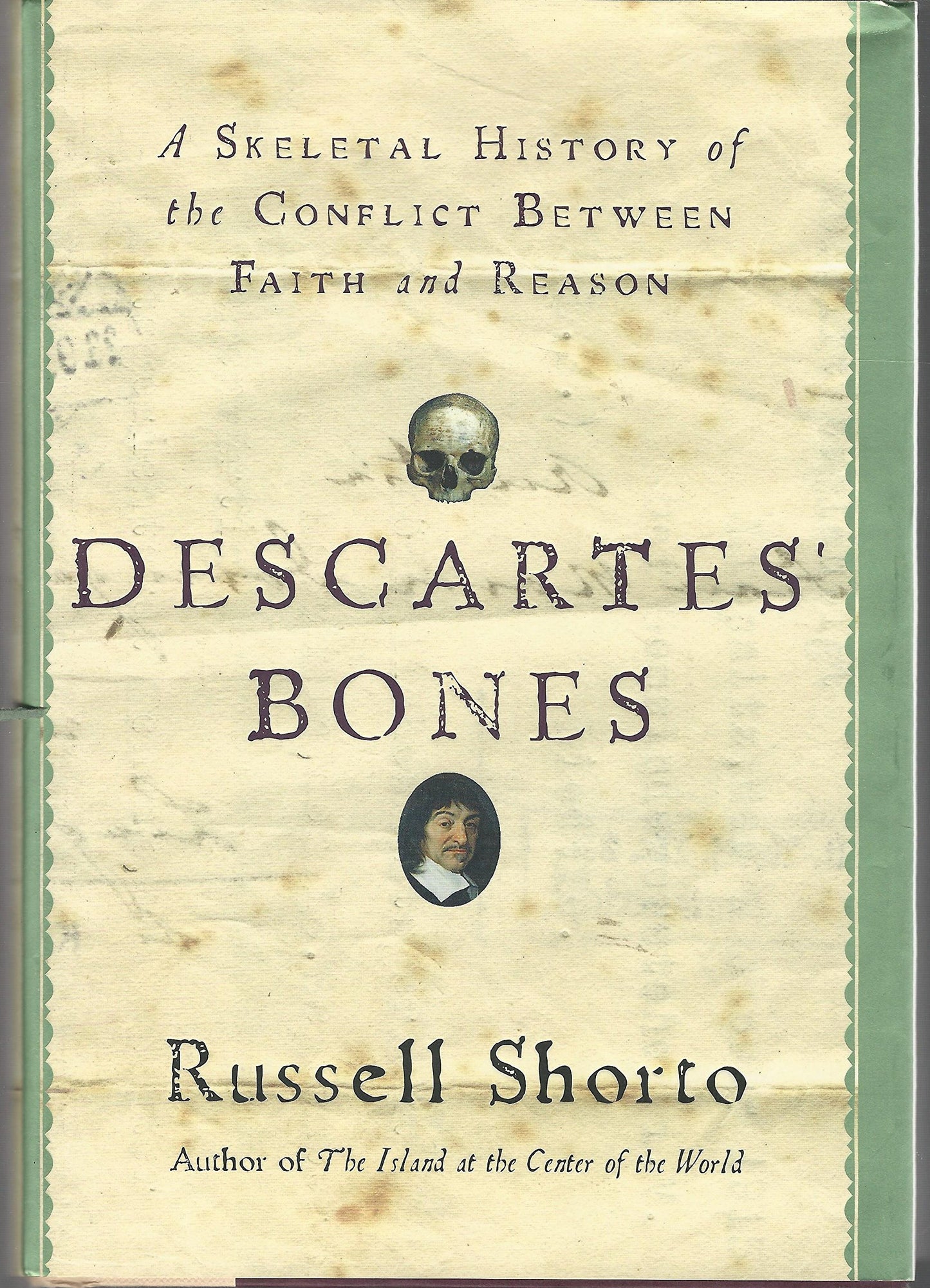Doubleday
Descartes' Bones: A Skeletal History of the Conflict between Faith and Reason
Regular price
$7.95 USD
Regular price
Sale price
$7.95 USD
Unit price
per
Shipping calculated at checkout.
Couldn't load pickup availability
Title: Descartes' Bones: A Skeletal History of the Conflict between Faith and Reason
Author: Shorto, Russell
ISBN: 9780385517539
Publisher: Doubleday
Published: 2008
Binding: Hardcover
Language: English
Publisher Description:
In 1666, sixteen years after his death, the bones of Rene Descartes were dug up in the middle of the night and transported from Sweden to France under the watchful eye of the French Ambassador. This was only the beginning of the journey for Descartes' bones, which, over the next 350 years, were fought over, stolen, sold, revered as relics, studied by scientists, used in seances, and passed surreptitiously from hand to hand. But why would anyone care so much about the remains of one long-dead philosopher? The answer lies in Descartes' famous phrase cogito, ergo sum: I think, therefore I am. At the root of this statement are skepticism and the world-shattering notion that one could look to facts that could be proved for truth rather than relying on the Church's teachings and tradition. In the years that followed, this powerful idea and Descartes' physical remains became intertwined with many of the major forces that define the modern era, influencing everything from the religious wars of the seventeenth century and the rise of democracy to today's greatest conflicts, such as the struggle between Islamic fascism and the Western world.
Author: Shorto, Russell
ISBN: 9780385517539
Publisher: Doubleday
Published: 2008
Binding: Hardcover
Language: English
Publisher Description:
In 1666, sixteen years after his death, the bones of Rene Descartes were dug up in the middle of the night and transported from Sweden to France under the watchful eye of the French Ambassador. This was only the beginning of the journey for Descartes' bones, which, over the next 350 years, were fought over, stolen, sold, revered as relics, studied by scientists, used in seances, and passed surreptitiously from hand to hand. But why would anyone care so much about the remains of one long-dead philosopher? The answer lies in Descartes' famous phrase cogito, ergo sum: I think, therefore I am. At the root of this statement are skepticism and the world-shattering notion that one could look to facts that could be proved for truth rather than relying on the Church's teachings and tradition. In the years that followed, this powerful idea and Descartes' physical remains became intertwined with many of the major forces that define the modern era, influencing everything from the religious wars of the seventeenth century and the rise of democracy to today's greatest conflicts, such as the struggle between Islamic fascism and the Western world.

